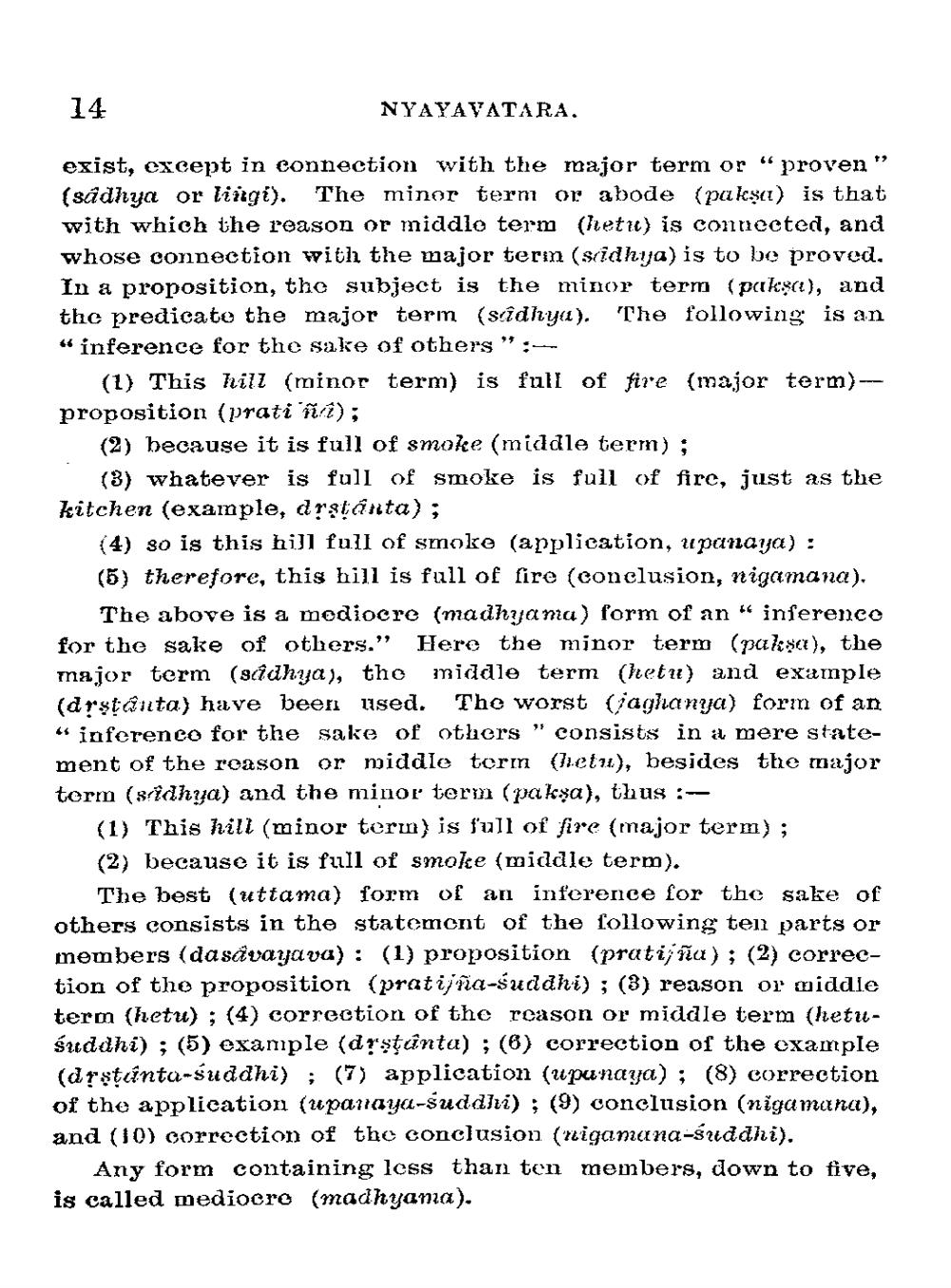________________
14
NYAYAVATARA.
exist, except in connection with the major term or “ proven" (sádhya or lingi). The minor term or abode (paks) is that with which the reason or middle term (lietu) is connected, and whose connection with the major terin (séidhya) is to be proved. In a proposition, the subject is the minor term (pakşcı), and the predicate the major term (sidhya). The following is an “ inference for the sake of others":
(1) This hill (minor term) is full of fire (major term)-- proposition (pratiñi);
(2) because it is full of smoke (middle term);
(3) whatever is full of smoke is full of fire, just as the kitchen (example, dratanta);
(4) 30 is this hill full of smoke (application, upanaya) : (5) therefore, this hill is full of fire (conclusion, nigamana),
The above is a mediocre (madhyama) form of an + inferenco for the sake of others." Here the minor term (paksa), the major term (scidhya), the middle term (hetu) and example (drstânta) have been used. The worst (jaghanya) form of an * inferenco for the sake of others " consists in a mere statement of the reason or middle term (hetu), besides the major term (s:idhya) and the minor tern (paksa), thus :
(1) This hill (minor term) is full of fire (major term); (2) because it is full of smoke (middle term).
The best (uttama) form of an inference for the sake of others consists in the statement of the following ten parts or members (dasåvayjava): (1) proposition (pratiju); (2) correction of the proposition (pratijña-suddhi); (3) reason or middle term (hetu); (4) correction of the reason or middle term (hetuśuddhi) ; (5) example (drștanta) ; (6) correction of the example (drštúnta-suddhi) ; (7) application (upanaya) ; (8) correction of the application (upanaya-suddhi) ; (9) conclusion (nigamana), and (10) correction of the conclusion (nigamana-śuddhi).
Any form containing less than ten members, down to five, is called mediocre (madhyama).




